Don’t mistake Verstappen’s intensity for ego
In the closing laps of last Sunday’s F1 Brazilian Grand Prix, drama between Red Bull teammates stole the show, sending the internet into a tizzy.
In case you missed it, Max Verstappen held sixth position with less than a lap remaining, one spot ahead of Red Bull teammate Sergio “Checo” Perez. Verstappen, who clinched the driver’s championship over a month ago, was asked to surrender his position to Perez before the two crossed the finish line. An additional spot for Perez would be a welcome boon in points, as the Mexican driver was—and still is—locked in an intense battle for second place in the driver’s championship standings.
Verstappen refused.
“I told you already last time, you guys don’t ask that question,” he said over the team radio. “Are we clear about that? I gave my reasons and I stand by it.” As soon as Verstappen finished his transmission, the F1 world chimed in. Twitter feeds swelled with comments that labeled the young champ as “classless” and “spoiled.”
Wow …ok I guess there is a “I” on a team right there. Just wow
— Tony Kanaan (@TonyKanaan) November 13, 2022
Red Bull held an emergency team meeting following Verstappen’s defiance. When the two-time champ emerged, he vowed to help his teammate in Abu Dhabi. Will it be too little, too late? Time will tell; remember that revenge is a dish best served cold.
The real question is: Was Verstappen justified in his refusal to move over, or should he have surrendered the spot?
Regardless of the discipline, team orders in auto racing have a long and complex history. In North American motorsports, explicit team orders are frowned upon, even penalized, by certain sanctioning bodies. Earlier this year, NASCAR team Stewart-Haas incurred a point penalty and fine when one of its cars slowed to block rivals so that the other Stewart-Haas could squeak by.
Formula 1, on the other hand, has adopted the team order tactic since the sport’s early days. In 1955, Mercedes asked Juan Manuel Fangio to let teammate Stirling Moss win in a grand prix in the Englishman’s homeland. Lorenzo Bandini surrendered his position to fellow Ferrari driver John Surtees so that he could notch enough points for the 1964 championship. In 1982—you get the idea.
Most examples of this … strategic collaboration weren’t as accepted as they are today. “I came up watching F1 in the Prost-Senna era, when most considered team orders to go against the intent of the sport,” says Hagerty editor Eddy Eckart. “You either had position on merit or you didn’t, and to slow down in a motor race was the antithesis of the activity itself.”
In the following decade, team orders became common practice. So much so that by the late 1990s, in the throes of Michael Schumacher’s dominance, it was speculated that Eddie Irvine served as Schumacher’s roadblock. Teammate choreography and tactics were morphing into blatant, convoluted exercises to achieve track position or maximize points, feints which sullied the sport’s image.
By 2002, the FIA outlawed team orders.
The ban didn’t last long. Less than a decade, in fact. Ahead of the 2011 season, the FIA deleted article 39.1, which prohibited team orders. Nearly every year since then, team collusion has reared its head in at least one grand prix.
You can’t fault the teams. Modern F1 racing seems to enable the orders. Competitors are constantly searching for the extra edge, that final thousandth. In an era of two-car operations, complex pit strategy, and a high degree of passing difficulty, support from a teammate is just another way to get ahead.
Orders have become increasingly transparent. Think of Valtteri Bottas playing a support role to teammate Lewis Hamilton’s multiple championships with Mercedes, or of last year’s season finale in Abu Dhabi, in which Perez held up title contender Hamilton to help Verstappen secure his first championship. Verstappen applauded his teammate, calling him a “legend” for delaying Hamilton. To borrow a line from the two most dynamic teammates Ricky Bobby and Cal Naughton Jr, in 2019 it appeared the teammates went together like “cocaine and waffles.”
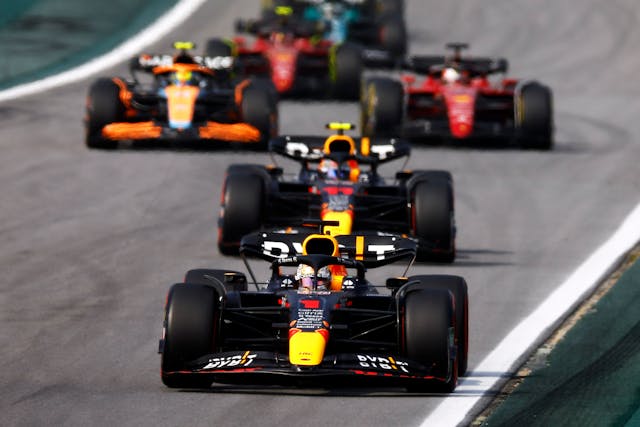
Last weekend, we witnessed a lack of reciprocation from Verstappen. This is what got F1 fanbase so steamed.
“Eddie Irvine once said being Michael Schumacher’s teammate was like being hit in the head with a cricket bat every other weekend,”says F1 reporter and Hagerty contributor James Foxall. “If you’re the number one driver, giving someone that kind of bruising treatment at every race, you have to give something back. Schumacher settled up when he gifted Irvine the 1999 Malaysian GP.”
“[Brazil] was a chance for Max to give something back,” says Foxall. “And the crazy thing is, it was for sixth place, which on the Red Bull scale of success might as well have been 16th.”
The next time Perez is asked to help his teammate, he may think twice.
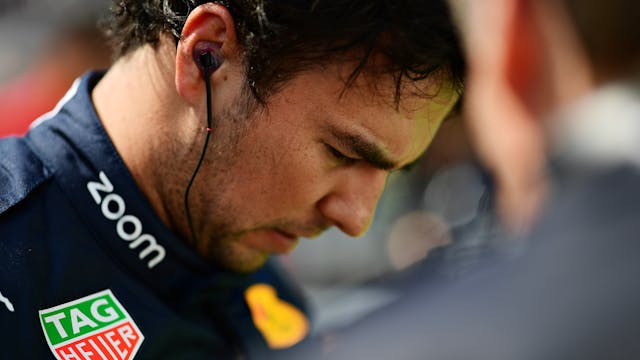
Still, Verstappen isn’t in the wrong.
Fans adore the incredibly talented Dutch driver because he is unapologetically brash, not because he is generous or poised. Just a few minutes before the Perez kerfuffle, Verstappen refused to back out of an overtake on Lewis Hamilton, causing a collision between the two drivers. Verstappen received a five-second time penalty for his aggressive move.
Rather than apologize, Verstappen looked Sky Sports in the eye.
“To be honest, I went around the outside and immediately felt he wasn’t going to leave space, so I just went for it. He didn’t leave me space so I knew we were going to get together. It cost him the race win and it gave me five seconds. It wouldn’t have mattered anything for my race.”
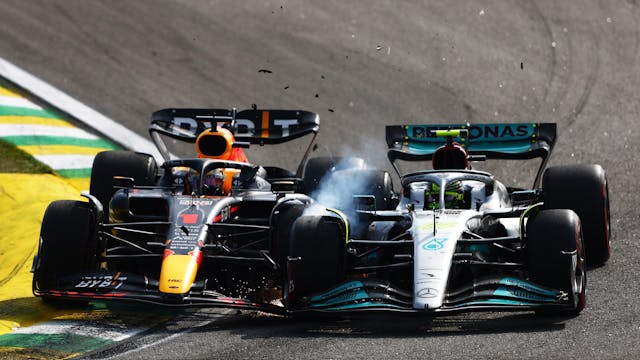
As bull-headed they are, that move and the incident with Perez are true to Verstappen’s character. There’s something to be said for being genuine, especially in an era in which you get the feeling that drivers are reading interview responses off cue cards.
Most of the men on the grid seem to be some combination of handsome, politically correct, and bland. Verstappen is, as Eckart says, “cut from a different cloth.”
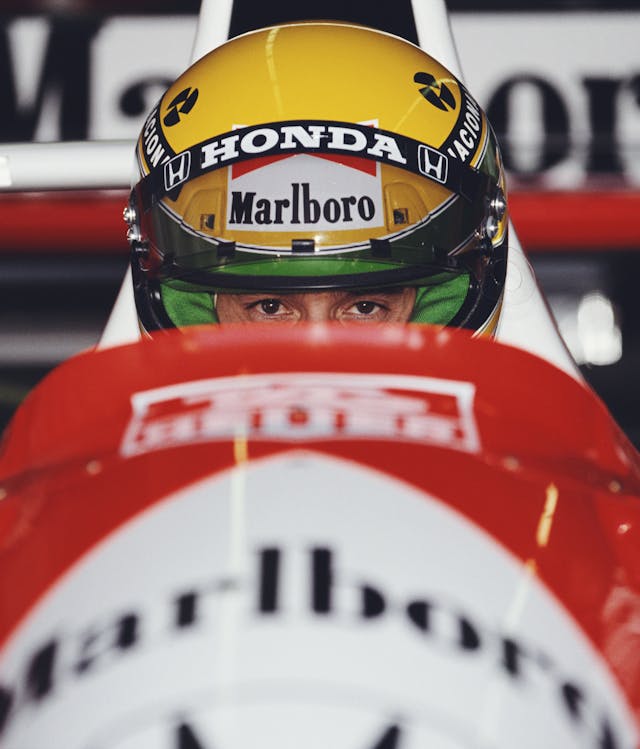
Verstappen’s refusal to relinquish a six-place spot underscores the ardent driver’s ruthlessness. Without it, Verstappen likely wouldn’t have had a full season of F1 competition under his belt before he turned 18. He is unrelenting in his pursuit of perfection, a throwback to other hot-blooded legends like Senna and James Hunt. (Go ahead and google “Hunt the Shunt.”)
Intensity is mistaken for selfishness by a new and young F1 fan base. The exponential growth in F1 viewership is well-documented, and it’s reasonable to assume that many of the fans questioning Verstappen’s character haven’t witnessed this type of ferocity. They may be too young or too new to the sport to remember the questionable—yet necessary—moves that won Schumacher seven world titles.
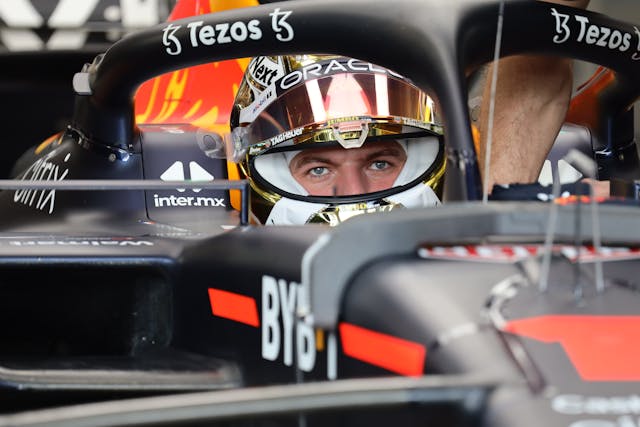
In addition, those that arrived since Drive to Survive may assume team orders are as mandatory as taxes. They are unfamiliar with the sport’s salad days, when it was all take and no give.
Veteran fans of the sport may recall a counterpoint to the no-holds-barred attitude of early 1990s F1, the moment when Senna let teammate Gerhard Berger through to win his first grand prix in 1991. First, let’s point out that this was one blip in the career of a driver who, on the track, took no prisoners. Second, Senna was 31 years old, a veteran who could see the forest through the trees. Verstappen is 25.
Asking Verstappen to backpedal in Sunday’s final lap was a foolish request in the first place. Red Bull should never try to tame the feral genius that hunted down two successive championships and dropped them at its door.

Check out the Hagerty Media homepage so you don’t miss a single story, or better yet, bookmark it. Motorsports what you crave? Head to Imola, Hagerty’s HQ for all things racing.
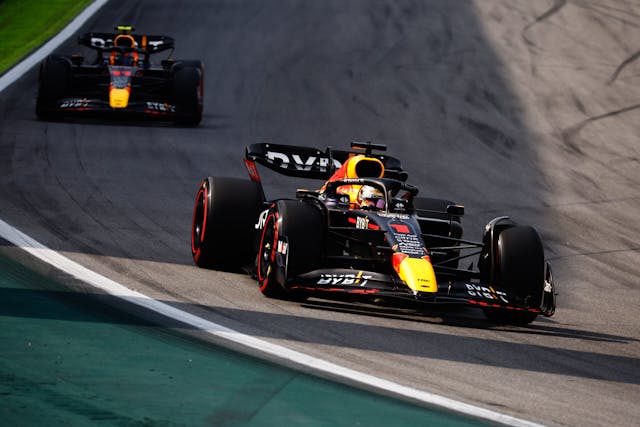
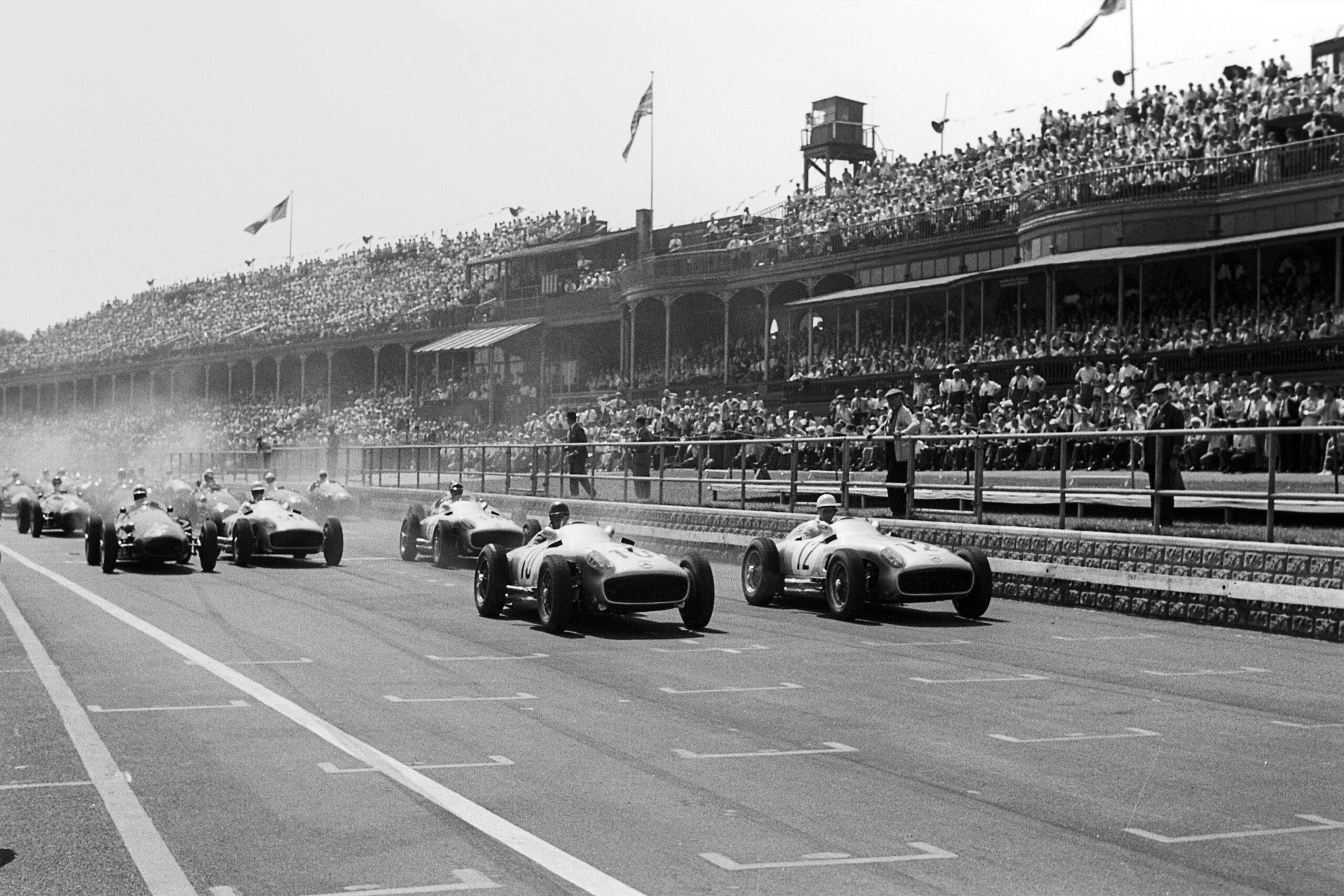
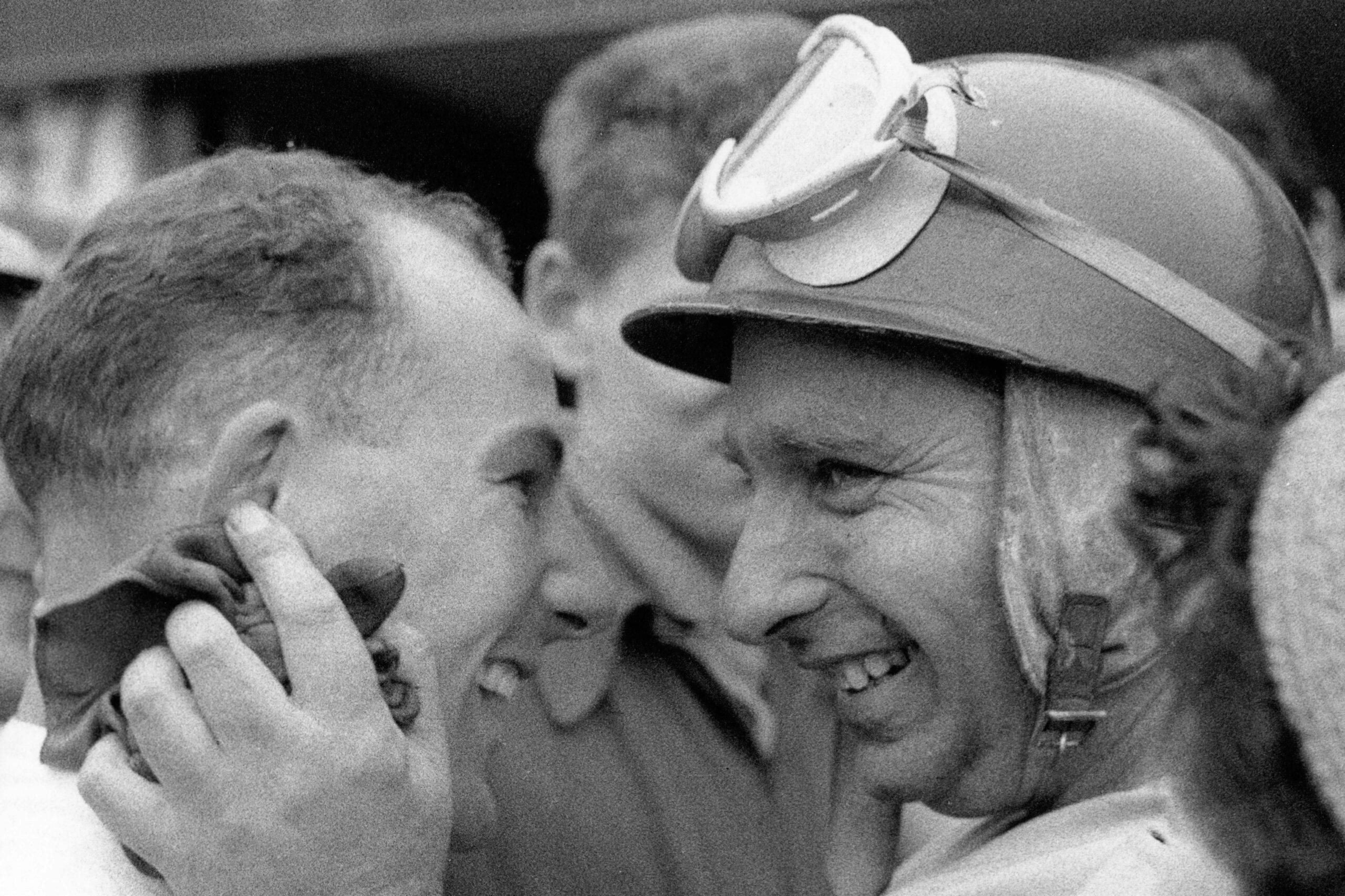


As an early 1970s UK Formula Ford Championship competitor, I can assure you that racing competitively is akin to physical combat. Every time you go out, you know that you can be killed. When funding your own effort, you also know that if you wreck your car you are done for the season. Self funding in F1 is no longer possible, it is a hugely expensive team sport in which no driver, however talented, can win solely on his own merits and skill, and no engineer, however talented, can win a constructors championship without a competent driver. Perez was asked to allow Verstappen to pass so that Verstappen could have ‘a go’ at the cars ahead, on the understanding that Verstappen would allow Perez to repass if Verstappen failed to improve his own position. It was churlish for Verstappen to refuse to follow his employer’s order.
Having said that, it was also churlish for FIA stewards to penalize Verstappen for the collision with Hamilton. Hamilton deliberately closed the door and tried to force Verstappen off the track, and it was Hamilton who deserved the penalty.
In my opinion, the Schumacher and Senna legends are tainted by the utter selfishness that they both typically demonstrated, along with the plain dangerous overtaking incidents where they gave the other driver a simple choice – ‘either let me through, or we will both crash’. On the other hand, multiple champions have always been able to mold the team around them – and that inevitably ends up with a number one and number two driver situation. As an old fart, I remember fondly when Gilles Villeneuve worked to win Jody Scheckter a world championship with Ferrari – that was a class act on Gilles’ part, and graciously received and honoured by Jody. That’s what I would like to see more of!
F1 is the most boring racing in this is era. 4 cars that have the potential to win, the rest are pylons.
Agreed – for anyone wanting to see real racing, might I suggest MotoGP?
The team has now issued a quite ridiculous statement blaming themselves rather than Max… Seeing the “courage” with which they defend their team orders, I think Red Ox would e a more apt name for the team…
MV is the Ty Cobb of F1. An unrelenting competitor with “unrelenting” encompassing performing in the moment contrary to the rules. The rules as the players (not a book) define them. As with Cobb, you admire the stats but not the man.
With regard to teams, my question is, and has always been, “Is it a team, or is it not a team?” If it’s a team, the team should be able to act as a team. If it’s not a team, then just have each manufacturer run only one car.
With regard to Max: I looked up “spin” in the dictionary, and it pointed me to this article.
F1 is a team sport and, as such, Max was obligated to follow team instructions. The rules allow it. Moreover, the full team effort by RBR to provide Max with a tremendous car and race support at every conceivable level make his loutish obstinance impossible to defend. A superb driver and a champion athlete, certainly, but one who ultimately acts only for himself.
Max isn’t a world champion last year without two things. First is Massi and his decision to give the last race to Max. Second is Sergio Perez sacrificing for Max more than once so that he could maximize position, and be there in that last race to accept that gift from Massi.
Therefore Max’s attitude is really not acceptable. Looks to me like a silly power play in a situation where that gained him nothing. I will never root for him again.
Max, please grow up quickly, show some humility and start acting like a teammate.
I do agree the late call to allow Perez by was bad, but not so bad as to excuse compliance.
Born with a silver spoon in his mouth, brought into the pinnicale of motor sport to young and immature, he was Vercrasshin from the beginning. Often allowed to escape penalties by the race stewards based on his youth, he still doesn’t understand why rules should apply to him. I wouldn’t call this great driving, rather it is driving with contempt of all others. This year didn’t really prove he has talent. The new car regulations, gave Adrian Newey, the creator of ground effects, a huge advantage over all other teams in the paddock. Almost like crafted to give RedBull the championship, and Vercrasshin drove the fastest car on the track. A car found not within regs, but allowed to run for 7 more races before they had to change the car( they won all 7 races) Next year will be the test of the “HUMAN ERROR” champion, and the 1 time world champion. If Ferrari, and Mercedes bring competitive cars.
I’m old school. He’s spoiled, and a hard head. We’ll see how he ages…
F1 has become a sport of situational ethics. VER says HAM left him no room at T2 in Brazil. Fine, I’d agree with that.
Now let’s review how much room VER left LEC at T1 – multiple times – in Austria a few years ago as they battled for the win in the closing laps.
I don’t think it’s either/or here. I think it’s more a case of VER being everything you say he is AND an entitled ass.